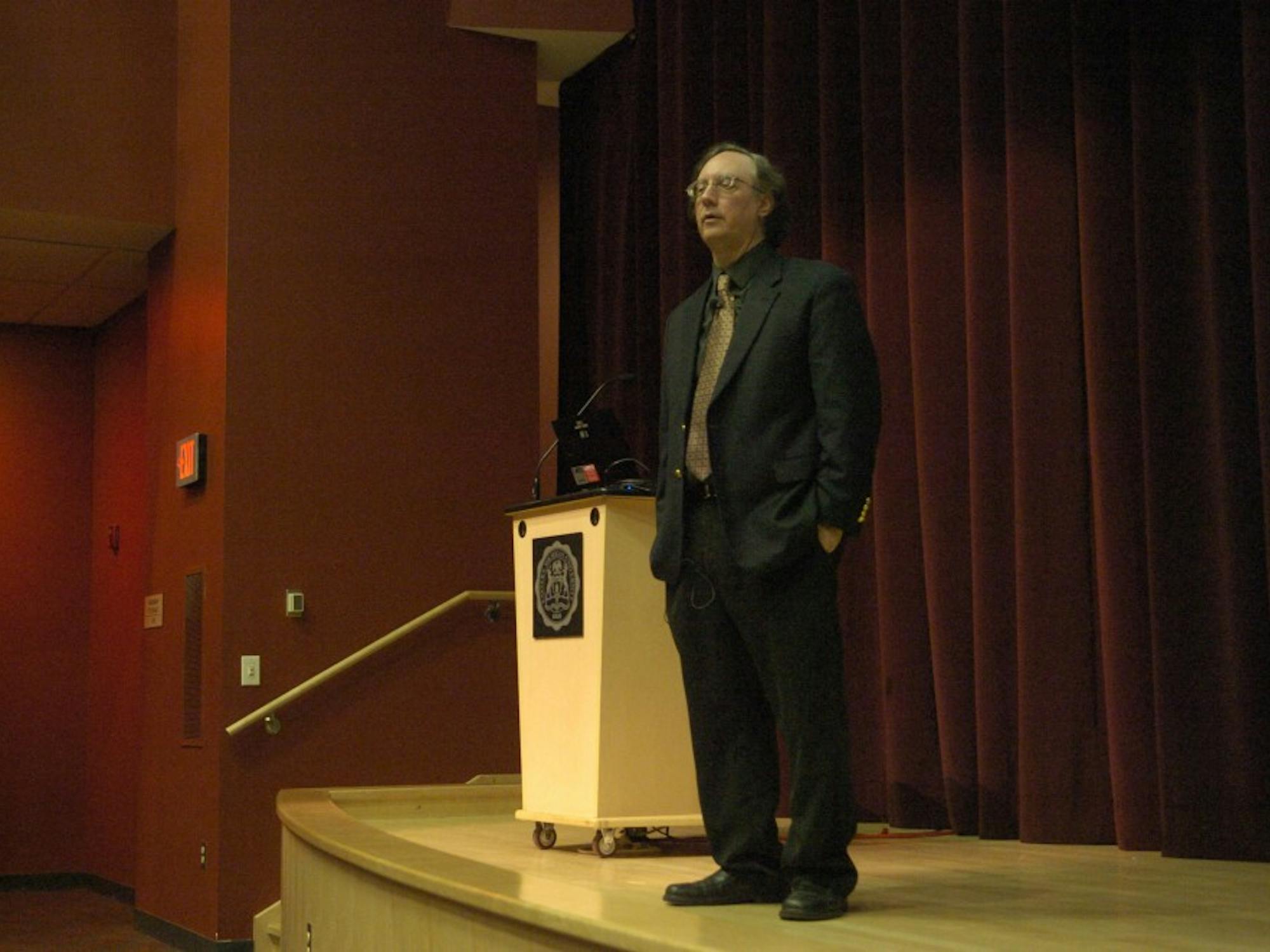Professor Juan R. Cole of the University of Michigan’s History department addressed the situation in the Middle East on Thursday evening in the Student Center, discussing American policy and its relation to Muslim culture in the U.S.
He started the evening by discussing the initial campaign promises of President Barack Obama, which had focused on the withdrawal of American troops from the region.
“Opinion polls showed it was the number one issue for the Arab public,” said Cole. “They were opposed to the U.S. presence in Iraq which they saw, generally speaking, as a military occupation and they wanted to end it.”
This was a reality the Bush administration was slow to grasp.
According to Cole, the Bush administration had felt they were being forced into setting a timetable for troop withdrawal, and had resisted pressure to do so.
This worked to earn Obama critical voter support during the election, given his campaign focus on ending the military presence in Iraq.
“I wouldn’t rule out that Obama might succeed.” However, he did have words for President Obama’s plan to push out the Taliban in Afghanistan. “I don’t think it’s going to work.”
On the subject of the territorial conflict between Israel and Palestine, Dr. Cole does not forsee a resolution in the near future.
“The possibility of a Palestinian state is quickly slipping away, as Gaza remains under Israeli blockade and Israeli settlements spread in the West Bank,” he said.
“The Palestinians have been divided among themselves by the Israelis and the Palestinian president, Mahmoud Abbas, says he cannot get an agreement from Israelis to free settlements,” Cole said.
According to Cole, the Israelis have tried to appease the Palestinian people, but their efforts have unsuccessful.
“A settlement freeze that does not include Jerusalem is not a settlement freeze. So the Palestinians have declined to come to the negotiating table,” he said.
“It’s a long term problem that’s been there for decades now,” Cole said.
Moving then to the growing tension regarding Iranian nuclear experimentation, Cole said if the Iranians were building an atomic bomb, the Americans would know about it.
“There isn’t any evidence that Iran will build an atomic bomb. You cannot make a bomb if you’re being inspected.”
Dr. Cole commented he would only begin worrying when Iran stops allowing inspectors in, and there is a surge in electricity use, or other indicators of bomb-building activities. If Iran were to build a nuclear bomb, already unstable relations with the U.S. would be seriously damaged.
In Dr. Cole’s view, the reasons why many in the Middle East dislike Americans are inaccurately represented in the media. “They tend to hate America over its policy issues,” he said.
The perception that people from the Middle East hate Americans for their lifestyle choices is incorrect.
“This is bizarre, from my point of view,” he said, in criticism of many common prejudices against people of the Muslim faith.
“The Muslim world is the new Soviet Union,” said Cole, comparing contemporary ignorance-based fear to the Red Scare of the previous century.
“I can’t find the ‘it’ that you are all supposed to be afraid of,” he said.
The world is going to “need petroleum for a very long time,” despite global plans to develop renewable sources of energy.
“We need petroleum, as much as we hate it. It surrounds you, it supports you, and it is your life,” Cole said
Dr. Cole felt most of the people in the Middle East want amiable relations with the United States, despite historical conflict between Christians and Muslims. “The Middle East doesn’t remember the crusades as wonderfully as we do,” he said. “Richard the Lionhearted really was not a nice guy.”









